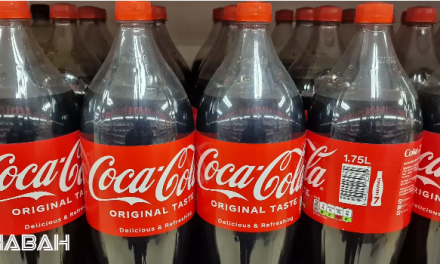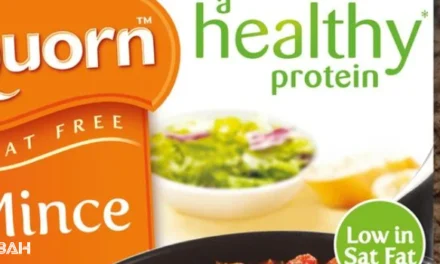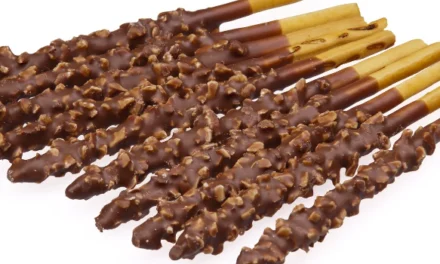Pickles and gherkins are beloved condiments that can add a tangy crunch to sandwiches, burgers, hot dogs, and many other foods. However, are you wondering if gherkins are halal? Gherkins are a type of cucumber that has been pickled in vinegar and spices. While cucumbers are halal, the pickling process may involve the use of alcohol, which is not halal. Therefore, it is important to check the ingredients and the manufacturing process of the gherkins to determine if they are halal. In this article, we will explore the topic of gherkins and pickles in more detail, and provide you with some useful information to help you make an informed decision.
- manufacturing processes
- analyses of common ingredients
- how to identify halal products
- best practices for Muslims seeking halal options
What Makes Food Halal or Haram in Islam?
According to the Holy Quran, for a food to be halal it must comply with Islamic dietary laws. As stated in the Quran in Surah Al-Baqarah:
“O mankind! Eat of that which is lawful and wholesome, and follow not the footsteps of the devil. Lo! he is an open enemy for you.” [Quran 2:168]
The following foods and ingredients are categorized as haram (forbidden) according to Islamic rulings:
- Pork and pork products
- Alcohol and intoxicating substances
- Improperly slaughtered meat (in the name of anyone other than Allah)
- Blood and blood byproducts
- Carnivorous animals
Additionally, foods can become haram if they are contaminated with any of the above during preparation and manufacturing.
Now let’s analyze some common pickle and gherkin ingredients to evaluate if they meet Quranic halal standards.
Examining Typical Pickle and Gherkin Ingredients
Here is an overview of primary pickling ingredients along with their halal status:
| Ingredient | Halal Status | Notes |
|---|---|---|
| Cucumbers/gherkins | Halal | Vegetables and plant matter are halal |
| Vinegar or acetic acid | Halal | Vinegar is a permissible acidulant |
| Water | Halal | Water has no restrictions |
| Salt | Halal | Salt is generally halal unless contaminated |
| Spices (dill, mustard, etc) | Halal | Plants used as spices are halal |
| Calcium chloride | Halal | Mineral-based firming agent |
| Natural flavors/preservatives | Questionable | May contain undisclosed alcohol – further analysis needed |
Let’s explore some of the potentially questionable ingredients further.
“Natural Flavors” and Preservatives Need Deeper Analysis
Companies use proprietary ingredient blends generically labeled as “natural flavors” or “spices.” These additives may contain traces of alcohol or other haram substances not disclosed.
To determine if these are halal, the manufacturing process must be analyzed. Scholars have varying rulings on minute traces of alcohol in food, but it’s ideal to avoid it altogether. Contact the manufacturer for details on “natural flavors” to perform a complete halal analysis.
Additionally, the preservatives used must be vetted. Some permissible options include lemon juice, vinegar, or vitamin E from plant sources. Preservatives derived from animal blood would be haram.
Alcohol Exposure Risk During Manufacturing
Even if all ingredients in a pickle product are halal, contamination could occur during manufacturing if alcohol is present nearby. Scholars disagree on the risk tolerance here.
More conservative groups like the Muslim Consumer Group recommend avoiding products made on equipment that processes pork or alcohol altogether. Others say if alcohol is promptly cleaned off equipment, the contamination risk is low. Manufacturing processes should be analyzed.
To summarize pickle and gherkin ingredients:
-
Vegetables, spices, salt and vinegar tend to be halal
-
But “natural flavors” and preservatives need further scrutiny
-
Alcohol exposure during manufacturing is also a potential risk factor
Evaluating Major Pickle & Gherkin Brands Worldwide
Now that we’ve covered the basics on pickle ingredients and manufacturing, let’s evaluate some major brands worldwide:
USA – Mt. Olive Pickles
Mt. Olive is a popular pickle company in the United States. Here is an analysis of their kosher dill pickle ingredients:
| Ingredient | Halal Risk Level |
|---|---|
| Cucumbers | Low – vegetables are halal |
| Water | Low – plain water |
| Vinegar | Low – permissible acidulant |
| Salt | Low – plain salt |
| Calcium Chloride | Low – mineral-based firming agent |
| Natural Flavors | Medium – may contain undisclosed alcohol |
| Polysorbate 80 | Low – plant-derived emulsifier |
| Turmeric | Low – halal spice |
The natural flavors may need further analysis to rule out any potential alcohol. But otherwise, a low-risk product.
Mt. Olive pickle products are not certified halal. Consumers would need to contact the company with any pressing concerns.
UK – Branston Pickle
Branston is a popular UK-based pickle brand. Here is an analysis of their Original Pickle recipe:
| Ingredient | Halal Risk Level |
|---|---|
| Vegetables (37%) | Low – halal |
| Spirit Vinegar | Low – permissible |
| Sugar | Low – halal |
| Salt | Low – halal |
| Spices | Low – halal plants |
| Firming Agent (Calcium Chloride) | Low – mineral-based |
| Natural Flavouring | Medium – may contain alcohol |
Again, the main flag here is the generic “natural flavouring” that requires further scrutiny to rule out haram additives. Branston does not claim any halal certifications.
India – Mother’s Recipe Pickle
Mother’s Recipe is a popular Indian pickle brand. Here is an analysis of common ingredients in their mixed vegetable pickle:
| Ingredient | Halal Risk Level |
|---|---|
| Vegetables | Low – halal |
| Oil | Low – vegetable-based |
| Salt | Low – halal |
| Spices | Low – halal |
| Acetic Acid | Low – permissible |
| Ascorbic Acid | Low – vitamin C |
Mother’s Recipe does not use any generic “natural flavors” or preservatives that would require vetting. And vegetable-based oils are halal. This product would likely be considered halal-compliant.
Indonesia – Sasa Pickles
Sasa is a pickle brand based in Indonesia. Here are sample ingredients in their mixed vegetable pickle:
| Ingredient | Halal Risk Level |
|---|---|
| Vegetables | Low – halal |
| Water | Low – halal |
| Sugar | Low – halal |
| Salt | Low – halal |
| Vinegar | Low – halal |
| Spices | Low – halal |
No major red flags in terms of haram ingredients. However, Sasa does not hold any halal certifications. Manufacturing processes would need to be examined. But seemingly a low-risk product.
This shows a sample of major brands worldwide. Consumers should analyze their local offerings similarly.
Best Practices for Identifying Halal Pickles & Gherkins
Here are some best practices Muslim consumers can follow to identify halal-compliant pickles and gherkins:
- Carefully read all ingredients lists, nutrition labels, packaging claims
- Research manufacturing processes when possible
- Contact manufacturers about alcohol use, equipment cleaning, natural flavors, etc.
- Look for halal symbols from certification bodies like JAKIM or IFANCA
- Shop at halal grocers and international stores like Middle Eastern markets
- Ask restaurants and food vendors directly about their pickles’ source and ingredients
Pickles from halal-focused brands, regions, and stores will be the safest bet. But with care and consideration, major global brands may offer compliant options as well.
General Guidelines for Halal Pickles & Gherkins
To summarize key guidelines, pickles and gherkins are more likely to be halal compliant if they:
- Are free of any haram ingredients like pork, blood, alcohol, improper meat
- Use a halal vinegar/brine like apple cider or white distilled vinegar
- Are flavored only with halal spices, herbs, and seasonings
- Do not contain generic “natural flavors” that may hide haram additives
- Are manufactured on equipment that prevents any cross-contamination with pork or alcohol
- Are preferably halal certified by an accredited halal agency
When in doubt, Muslim consumers should contact the manufacturer and use discretion.
Is Gherkins Halal – Frequently Asked Questions
Gherkins are considered halal as long as they are prepared according to Islamic dietary laws and do not contain any haram ingredients.
Are pickles halal?
Generally, pickles are considered halal unless they contain any haram ingredients or have been processed using non-halal substances.
Can I consume gherkins with a halal certification?
Yes, gherkins with a valid halal certification are safe for consumption and meet the Islamic dietary requirements.
What ingredients are used in making pickles?
The ingredients used in making pickles usually include cucumbers, vinegar or brine, salt, dill, and various spices. It is important to check the label carefully and follow any dietary guidelines mentioned.
Are brine or vinegar pickles halal?
Brine or vinegar pickles are generally considered halal, as long as they are prepared without any haram ingredients, alcohol, or non-halal substances.
Is it necessary to check the halal status of pickles?
Yes, it is recommended to check the halal status of pickles before consuming them, especially if there is no clear indication of their halal certification or ingredients used.
Are gherkins considered halal condiments?
Yes, gherkins are often used as halal condiments and can be enjoyed with various dishes as part of a halal diet.
Can believers consume pickles as food?
Yes, pickles are considered permissible for believers to consume as food, provided they are prepared according to Islamic dietary guidelines.
Do pickles contain haram ingredients like mustard seed?
Pickles may contain mustard seed as one of the ingredients, but it is not haram. However, it is important to ensure the overall preparation is halal and free from any non-permissible ingredients.
Is gherkins a top-notch halal snack option?
Gherkins can be considered a top-notch halal snack option for those looking for a tasty and halal-approved choice. Just make sure to check the label carefully and follow any dietary guidelines or certifications.
Conclusion
The mainstream ruling is that pickles and gherkins are generally permissible for Muslims to eat, provided care is taken to ensure halal manufacturing and ingredients.
However, those wanting to exercise maximum precaution should verify proper protocols with each manufacturer and look for halal certification.
With careful label reading, due diligence, and intentionally sourcing from halal brands, Muslims can safely enjoy pickles as part of a halal diet.
Key Takeaways: Quick Summary
-
For food to be halal, it must comply with Islamic dietary laws in the Quran
-
Vegetables, vinegar, and spices are typically halal ingredients
-
“Natural flavors” and preservatives need vetting to ensure no haram additives
-
Alcohol use and contamination risk during manufacturing should be analyzed
-
Muslims should read labels carefully, ask manufacturers questions directly, and seek out halal-focused brands
-
Mainstream ruling is that store-bought pickles are generally halal compliant
So in summary – yes, Muslims can eat pickles and gherkins through mindful selection and checking manufacturing processes. Stay diligent and enjoy the tangy crunch!





